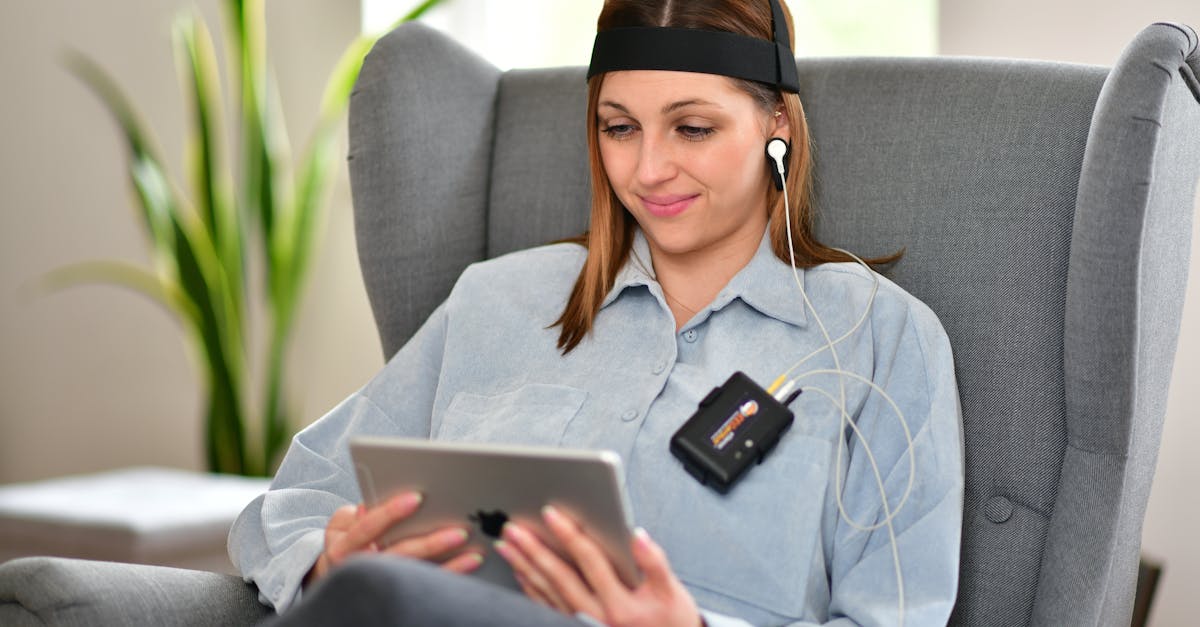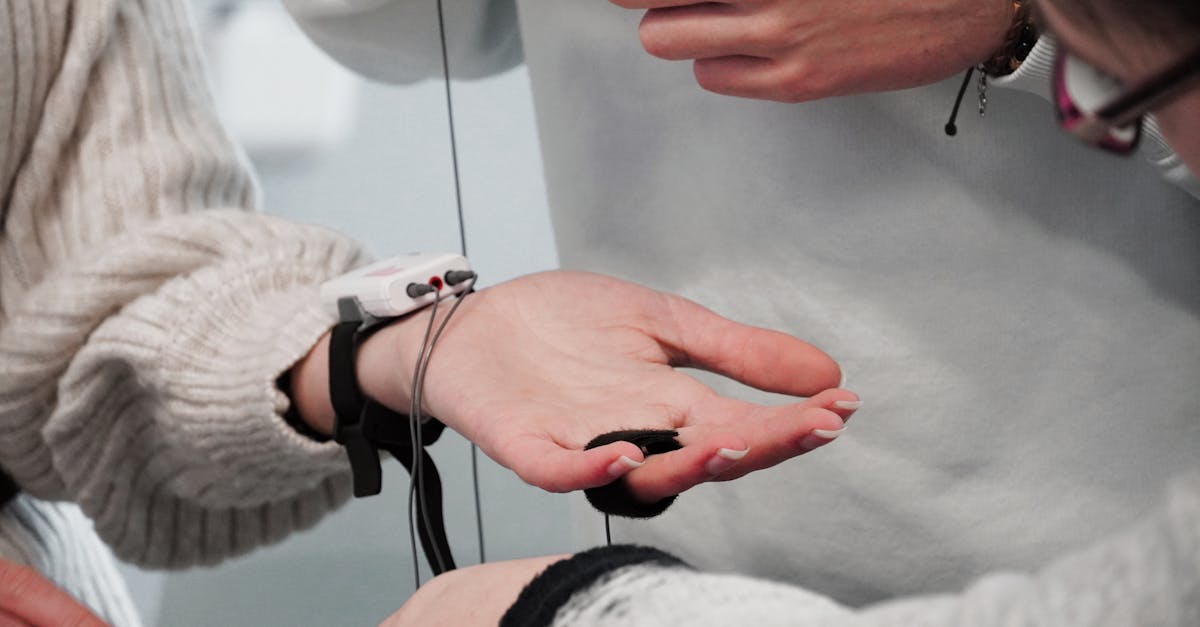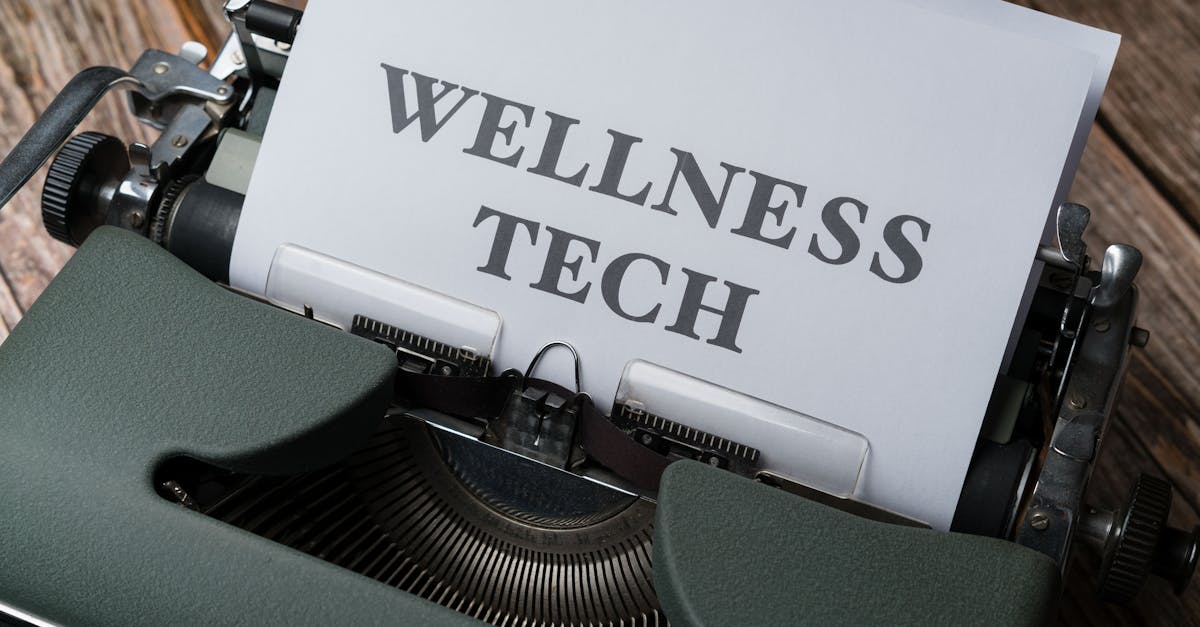Struggling with headache relief and migraine pain? Discover the transformative power of biofeedback.
In Short: Biofeedback for headaches is a promising method that addresses various headache types, including chronic migraines, tension headaches, and even aura migraines. This innovative approach empowers individuals to better understand headache causes and manage migraine triggers effectively. By utilizing tools that monitor bodily functions, this technique can lead to significant improvements in managing symptoms, reducing pain, and enhancing overall well-being. Pulse Align Clinics provide a unique and simple approach to integrating biofeedback into your daily routine. Reclaim your health and wellness with our innovative techniques. BOOK YOUR APPOINTMENT today!
Are you struggling with chronic migraines and headache pain?
Discover a revolutionary approach to managing headaches with biofeedback for headaches and level up your practice with Pulse Align. Biofeedback offers a natural pathway for headache relief, targeting underlying causes of migraine pain and tension headaches. This innovative technique empowers individuals to regain control over their well-being, addressing common migraine triggers and providing effective solutions for hormonal headaches, cluster headaches, and more. By incorporating biofeedback, you can explore natural headache remedies, improve treatment outcomes, and foster a supportive environment for those navigating the complexities of headaches.

Pulse Align: Elevate Your Wellness Journey
In today’s fast-paced world, the quest for better well-being and optimal posture has never been more vital. Everyone deserves to feel balanced and aligned, and that’s where Pulse Align comes in—with gentle stimulation designed to support your body’s natural functions and facilitate neuromuscular recalibration.
Understanding the Pulse Align Approach
At Pulse Align, we believe that achieving a state of balance is key to overall wellness. Our innovative method focuses on enhancing muscle tone and improving posture, nurturing your body’s inherent ability to heal itself. By utilizing gentle stimulation technology, Pulse Align promotes a return to natural balance, allowing your body to adjust and realign in a way that feels comfortable and refreshing.
Holistic Benefits of Pulse Align
This holistic strategy not only fosters optimal well-being but also empowers clients to engage deeply with their health journey. Clients often report experiencing improved symmetry, which can lead to a more relaxed and centered feeling throughout the day. Positive changes in posture can significantly impact your quality of life, enhancing your overall physical presence and self-assurance.
What Our Clients Are Saying
“After just a few sessions, I noticed a remarkable shift in my posture and how I felt during daily activities. It was truly refreshing!” says one satisfied client. Others have shared their experiences of feeling more comfortable and balanced after engaging with our services, leading them to embrace a healthier lifestyle naturally.
Book a Consultation Today!
If you’re ready to explore how Pulse Align can transform your wellness journey, we invite you to book a consultation today. Whether you are in Montreal, La Prairie, Terrebonne, Chicoutimi, Charlesbourg, Saint-Jérôme, Châteauguay, Sainte-Marie, Les Escoumins, Granby, or Panama City, there is a Pulse Align clinic near you. Remember, Pulse Align is here to complement your healthcare services, promoting natural balance and muscle tone symmetry throughout your entire family’s wellness journey.
Biofeedback Techniques to Enhance Headache Relief with Pulse Align
- Biofeedback Training: Monitor stress responses to enhance relaxation.
- Customized Protocols: Tailor treatments based on individual needs for maximum effectiveness.
- Real-time Monitoring: Utilize sensors to provide immediate feedback on physiological responses.
- Natural Healing: Support your body’s innate ability to heal through non-invasive methods.
- Enhanced Self-awareness: Empower patients with a deeper understanding of their pain triggers.
- Stress Reduction Techniques: Incorporate relaxation techniques for managing headache symptoms.
- Patient Empowerment: Increase self-efficacy through education and practice strategies.
- Holistic Approach: Combine biofeedback with lifestyle changes for comprehensive care.

Introduction to Biofeedback for Headaches
Chronic headaches can disrupt daily life, leaving many searching for natural headache remedies and effective treatment options. One innovative solution gaining momentum is biofeedback, particularly through advanced systems like Pulse Align. This method utilizes noninvasive techniques to help individuals better understand their physiological responses, specifically targeting headache relief. In this guide, we’ll explore how incorporating biofeedback into your wellness practice can elevate headache management, focusing on symptoms ranging from migraine pain to tension headaches.
Understanding Biofeedback and Its Benefits
Biofeedback is a pioneering therapy that encourages self-regulation of bodily functions by supplying real-time data on physiological indicators. Patients are connected to sensors that track metrics such as heart rate and muscle tension, fostering a greater understanding of their body’s responses to stress and tension—key factors in headache causes. By integrating Pulse Align into your practice, patients can learn to recognize their specific migraine triggers, leading to proactive management strategies for headaches.
Effective Techniques for Headache Management
Several methods utilizing biofeedback can enhance treatment outcomes:
- Biofeedback Training Sessions: Offering structured sessions allows patients to monitor their autonomic functions and learn de-stressing techniques, vital for reducing nausea with headache.
- Home Remedies for Migraines: Patients can employ practices like posture correction and core strengthening exercises—part of a holistic plan to improve posture while minimizing triggers.
- Essential Oils for Headaches: Incorporating aromatherapy with biofeedback can alleviate symptoms, providing a dual approach to managing pain.
The Role of Pulsy Align in Holistic Healing
Pulse Align stands out by not only offering biofeedback technology but also promoting holistic recalibration. With a focus on establishing natural balance within the body, this technique enhances the body’s resilience against various headache types, including cluster headaches and menstrual migraines. By exploring migraine diets and identifying foods that trigger migraines, patients gain a comprehensive understanding of their body dynamics, leading to sustained relief.
Fostering Community Support and Empowerment
The journey towards headache relief is oftentimes not just individual but communal. Fostering supportive networks where shared experiences abound encourages patients to adopt practices reflective of resilience and self-empowerment. Strategies that emphasize both trunk exercises for posture improvement and metabolic harmony effectively rewire patient perceptions of their chronic conditions.
Take Action: Elevate Your Practice Today
By adopting biofeedback strategies and utilizing Pulse Align technology, practitioners can offer personalized solutions tailored to various headache conditions. Embrace this opportunity to delve into comprehensive treatment plans that empower clients against persistent pain. Book a consultation today and unlock your potential for positive change in headache management. Explore greater wellness together as we navigate the path to optimal health and migraine relief.
Comparing Biofeedback Techniques for Headache Relief
| Biofeedback Technique | Key Features |
|---|---|
| EMG Biofeedback | Targets muscle tension, resulting in reduced headache frequency and intensity. |
| Thermal Biofeedback | Utilizes temperature sensors to promote relaxation and reduce pain. |
| Heart Rate Variability | Monitors heart rhythm to enhance relaxation responses during stress. |
| Respiratory Biofeedback | Focuses on breathing patterns, helping in stress management and headache relief. |
| Pulse Align Technology | Offers personalized wellness solutions by restoring balance and promoting natural healing. |
| Virtual Training Options | Enables patients to learn techniques remotely, increasing accessibility. |

Transformative Wellness Journeys with Pulse Align
Clients across various regions have experienced remarkable transformations in their health and wellness journeys through Pulse Align’s unique biofeedback approach. This innovative method empowers individuals to tap into their body’s natural ability to recalibrate and restore balance, leading to profound improvements in their daily lives.
In cities like Mont-Royal and Châteauguay, many have shared their experiences of enhanced well-being. One client noted that after incorporating Pulse Align into their routine, they felt a significant reduction in their headaches. “It was as if my body had been given a new chance to reset,” they expressed. This sentiment is echoed by others who have benefited from learning how to manage their physiological responses more effectively.
Residents of Sainte-Marie and Deux-Montagnes have also embraced this holistic approach, noting that the feedback mechanisms have enabled them to achieve greater self-awareness and control over their health. “I never realized how much my body needed this,” remarked a local client. “The natural improvements I’ve seen with Pulse Align have transformed my life.”
In Saint-Jérôme and Chicoutimi, clients are discovering that this method not only alleviates headache symptoms but also fosters a deeper understanding of their body’s signals. Many have reported feeling lighter, both physically and mentally. “It’s been liberating to feel so in tune with my body,” shared one enthusiastic client.
As individuals in these communities continue to explore the benefits of Pulse Align, they are not just finding relief from headaches; they are embracing a lifestyle that supports holistic recovery and sustainable wellness. By working alongside healthcare teams, Pulse Align creates a collaborative environment that enriches the wellness journey for clients and their families alike.
If you’re located in Les Escoumins or Terrebonne, or any part of the surrounding areas, you can experience the impactful benefits of Pulse Align for yourself. Navigate to Our Clinics to find out more about how we can partner with you on your path to improved health and vitality.
Reclaim Your Life from Headaches and Migraines with Innovative Solutions
Living with chronic headaches or migraines can often feel like a never-ending battle. Many people struggle with the debilitating pain and the emotional toll it takes on their lives. Fortunately, advancements in treatment options such as biofeedback are paving the way to improved management of these conditions. This noninvasive mind-body therapy allows individuals to monitor and control their body’s physiological functions, leading to greater awareness and relief from headache symptoms.
At the forefront of these innovative solutions is Pulse Align, utilizing cutting-edge technology to address the underlying physiological imbalances that contribute to chronic headaches. By promoting natural healing and restoring harmony within the body, patients can experience a comprehensive path to optimal health and well-being. Pulse Align offers personalized wellness solutions that help individuals reclaim their lives through improved coping strategies and techniques tailored to their specific needs.
Our Mission
At Pulse Align, our mission is to deliver evidence-based, client-centered treatments that address the underlying causes of pain and dysfunction. By integrating advanced techniques and technologies, we strive to empower each person to take control of their health, ensuring a high standard of care, lasting relief, and an improved quality of life.
For those interested in exploring biofeedback techniques at home, there are several simple practices that can effectively enhance your well-being. Incorporating practices that focus on monitoring stress responses, learning relaxation techniques, and developing self-awareness can significantly improve your ability to manage chronic headaches. As you gain more control over your body’s involuntary functions, you’ll likely see a shift in your mental and emotional outlook too.
Join the movement towards innovative headache management and discover the many benefits that Pulse Align has to offer. To learn more about our approach and the available services, visit www.pulsealign.com and find a location near you here.
Enhance Your Recovery with TAGMED’s Spinal Decompression Therapy
At TAGMED, we are proud to offer advanced Spinal Decompression Therapy, a non-surgical solution tailored for patients facing moderate-to-severe disc issues such as herniated discs, bulging discs, or conditions involving spinal stenosis. This innovative technique gently alleviates pressure on affected discs and nerves, aiming to improve mobility, reduce pain, and support your body’s natural healing processes. If you’ve plateaued with traditional therapies, our evidence-based approach may reignite your journey to an active and comfortable life.
Have you tried conventional treatments and still struggle with persistent back pain due to a severe disc condition?
TAGMED’s neurovertebral decompression employs a methodical, controlled traction force applied to the spine. This process involves gradual stretching to increase the space between vertebrae, effectively diminishing pressure on intervertebral discs and nerve roots. As the area experiences enhanced fluid circulation, inflammation is decreased and pain is alleviated. This non-invasive method presents a reliable pathway for those grappling with chronic back pain, sciatica, and associated discomfort.
The benefits of TAGMED’s approach speak volumes. Our neurovertebral decompression technology is particularly effective in relieving chronic pain linked to conditions like disc herniation and foraminal stenosis. By optimizing fluid circulation around the discs, patients may experience accelerated recovery and improved quality of life. The therapy mitigates pressure on nerve structures, addressing the core issues leading to persistent discomfort.
When compared with traditional treatments, TAGMED’s neurovertebral decompression consistently stands out. While pain medications and corticosteroid injections carry risks and often provide temporary relief, our non-invasive technique minimizes medication-related complications, offering a potential faster recovery path. Unlike surgical options, which can entail significant downtime and uncertainty, our therapy promotes a holistic approach aimed at genuine healing.
Real-world testimonials from patients who have undergone TAGMED’s neurovertebral decompression highlight encouraging outcomes. Many report lasting pain relief, swift resumption of daily activities, and a noteworthy decline in reliance on pharmaceuticals. These firsthand experiences emphasize the tangible benefits and practical effectiveness of our therapy.
At TAGMED, we prioritize your comfort and well-being. Our specialized decompression therapy not only targets chronic pain but also enriches your overall health journey. If you’re ready to explore a safer, evidence-based alternative, consider TAGMED’s advanced spinal decompression today.
Elevate Your Wellness Journey with Biofeedback and Pulse Align
If you’re looking to embrace a natural and holistic health strategy for yourself, Pulse Align offers meaningful benefits that can enhance your daily life. Utilizing advanced biofeedback technology, Pulse Align allows individuals to gently recalibrate their neuromuscular systems, resulting in improved posture correction, reduced discomfort, increased mobility, and overall enhanced well-being.
Clients have reported transformative experiences with Pulse Align, appreciating the gentle approach that focuses on supporting the body’s natural healing abilities. This empowering journey gives individuals a renewed sense of self-control and a positive outlook on managing their day-to-day wellness. Through personalized pathways to natural pain relief, Pulse Align cultivates a nurturing environment where healing can flourish.
Are you ready to take the next step towards optimal health? Discover the Pulse Align difference today and learn how this innovative technology can assist you in your wellness journey. To experience this profound shift in your well-being, visit our website or schedule your consultation now at a clinic near you. An enriching journey towards holistic health awaits you!

Do you suffer from a chronic condition that responds little or not at all to conservative treatments?
At Pulse Align, we present an innovative and non-invasive method designed to restore the body’s natural balance and posture through gentle, imperceptible pulses. This approach allows your body to harmonize internally, potentially easing tension in muscles and joints. By fostering an environment for natural recuperation, Pulse Align champions holistic well-being.
Instead of concentrating on discomfort or conditions, Pulse Align aims to help the body recalibrate its inherent balance, paving the way for comfortable movement and improved posture. Clients often find that engaging with our services leads to unexpected enhancements in their overall well-being, marking a significant step toward a healthier lifestyle.
Our personalized approach is at the heart of what we do. Many clients have shared uplifting testimonials, noting remarkable improvements in their experiences related to tension and overall wellness. Whether the focus is on neck and back comfort or simply feeling more aligned, our gentle methods have resonated positively with those seeking gradual yet powerful shifts in their sense of ease and mobility.
We invite you to explore more about Pulse Align by visiting our website, where you can find additional insights, locate our clinics in cities such as La Prairie, Mont-Royal, and Terrebonne, and book a consultation for either yourself or your family. Remember, Pulse Align complements your existing healthcare plans without replacing them, ensuring a comprehensive approach to well-being. To get started on your journey toward improved muscle tone and posture, visit Pulse Align and book your appointment online today.
Frequently Asked Questions
Headache and Migraine
- Does cognitive-behavioral therapy help?Yes, it teaches stress and pain management techniques, reducing migraine frequency and intensity.
- Does bright light trigger migraines?Yes, light sensitivity is common, and bright light can worsen a migraine attack.
- Are anti-inflammatories effective for migraines?They can relieve mild to moderate attacks, but severe migraines often need specific treatments.
- How to differentiate a migraine from a tension headache?Tension headaches cause diffuse, moderate pressure. Migraines are often more severe, pulsating, one-sided, and accompanied by associated symptoms.
- Can migraines disappear with age?In some individuals, migraines become less frequent and less intense over time.
- Is an aura always present?No, only about 20% of migraine sufferers experience an aura before the attack.
- What are common causes of headaches?Stress, fatigue, dehydration, muscle tension, sleep disorders, or too much caffeine can trigger a headache.
- Are blue-light filtering screens useful?They reduce eye strain, potentially lowering headache risk.
- Does exercise help regulate migraines?Moderate, regular exercise reduces stress and improves circulation, potentially lowering migraine frequency.
- Can migraines include nausea?Yes, nausea and sometimes vomiting are common migraine symptoms.
Ethan Dubois is dedicated to shining a light on the hidden struggles of chronic headaches. As a Headache Awareness Advocate at Pulse Align, he combines compassionate storytelling with cutting-edge research to bring clarity, comfort, and hope to those affected. Ethan’s mission is to empower readers with knowledge, break through stigma, and foster a supportive community where every voice is heard. When he’s not crafting insightful articles, Ethan can be found exploring the latest wellness trends, sharing practical coping strategies, or simply lending a listening ear to those in need. His heartfelt approach and unwavering commitment to awareness make him a trusted ally for anyone navigating life with headaches.
References
- Choi, S.-Y., & Choi, J.-H. (2016). The effects of cervical traction, cranial rhythmic impulse, and Mckenzie exercise on headache and cervical muscle stiffness in episodic tension-type headache patients. Journal of Physical Therapy Science, 28(3), 837–843. https://www.jstage.jst.go.jp/article/jpts/28/3/28_jpts-2015-893/_article/-char/ja/
- Pradhan, S., & Choudhury, S. S. (2018). Clinical characterization of neck pain in migraine. Neurology India, 66(2), 377–384. https://journals.lww.com/neur/fulltext/2018/66020/clinical_characterization_of_neck_pain_in_migraine.19.aspx
- Aoyama, N. (2021). Involvement of cervical disability in migraine: a literature review. British Journal of Pain, 15(2), 199–212. https://doi.org/10.1177/2049463720924704
- Balaban, M., Celenay, S. T., Lalecan, N., Akan, S., & Kaya, D. O. (2024). Morphological and mechanical properties of cervical muscles in fibromyalgia with migraine: A case-control study. Musculoskeletal Science and Practice, 74, 103185. https://www.sciencedirect.com/science/article/pii/S2468781224002807
- Lin, L.-Z., Yu, Y.-N., Fan, J.-C., Guo, P.-W., Xia, C.-F., Geng, X., Zhang, S.-Y., & Yuan, X.-Z. (2022). Increased stiffness of the superficial cervical extensor muscles in patients with cervicogenic headache: A study using shear wave elastography. Frontiers in Neurology, 13, 874643. https://www.frontiersin.org/articles/10.3389/fneur.2022.874643/full
- Fernández‐de‐las‐Peñas, C., Cuadrado, M. L., & Pareja, J. A. (2007). Myofascial Trigger Points, Neck Mobility, and Forward Head Posture in Episodic Tension‐Type Headache. Headache: The Journal of Head and Face Pain, 47(5), 662–672. https://doi.org/10.1111/j.1526-4610.2006.00632.x
- Al-Khazali, H. M., Younis, S., Al-Sayegh, Z., Ashina, S., Ashina, M., & Schytz, H. W. (2022). Prevalence of neck pain in migraine: A systematic review and meta-analysis. Cephalalgia, 42(7), 663–673. https://doi.org/10.1177/03331024211068073
- Al-Khazali, H. M., Al-Sayegh, Z., Younis, S., Christensen, R. H., Ashina, M., Schytz, H. W., & Ashina, S. (2024). Systematic review and meta-analysis of Neck Disability Index and Numeric Pain Rating Scale in patients with migraine and tension-type headache. Cephalalgia, 44(8), 03331024241274266. https://doi.org/10.1177/03331024241274266
- Fernández-de-las-Peñas, C., Madeleine, P., Caminero, A., Cuadrado, M., Arendt-Nielsen, L., & Pareja, J. (2010). Generalized Neck-Shoulder Hyperalgesia in Chronic Tension-Type Headache and Unilateral Migraine Assessed by Pressure Pain Sensitivity Topographical Maps of the Trapezius Muscle. Cephalalgia, 30(1), 77–86. https://doi.org/10.1111/j.1468-2982.2009.01901.x
- Zwart, J. (1997). Neck Mobility in Different Headache Disorders. Headache: The Journal of Head and Face Pain, 37(1), 6–11. https://doi.org/10.1046/j.1526-4610.1997.3701006.x
- Calhoun, A. H., Ford, S., Millen, C., Finkel, A. G., Truong, Y., & Nie, Y. (2010). The Prevalence of Neck Pain in Migraine. Headache: The Journal of Head and Face Pain, 50(8), 1273–1277. https://doi.org/10.1111/j.1526-4610.2009.01608.x
- Luedtke, K., Starke, W., & May, A. (2018). Musculoskeletal dysfunction in migraine patients. Cephalalgia, 38(5), 865–875. https://doi.org/10.1177/0333102417716934
- Kolding, L. T., Do, T. P., Ewertsen, C., & Schytz, H. W. (2018). Muscle stiffness in tension-type headache patients with pericranial tenderness: A shear wave elastography study. Cephalalgia Reports, 1, 2515816318760293. https://doi.org/10.1177/2515816318760293
- Florencio, L. L., De Oliveira, A. S., Carvalho, G. F., Tolentino, G. D. A., Dach, F., Bigal, M. E., Fernández‐de‐las‐Peñas, C., & Bevilaqua Grossi, D. (2015). Cervical Muscle Strength and Muscle Coactivation During Isometric Contractions in Patients With Migraine: A Cross‐Sectional Study. Headache: The Journal of Head and Face Pain, 55(10), 1312–1322. https://doi.org/10.1111/head.12644
- Bjarne, B. (2024). NECK MUSCLE ELASTICITY IN CERVICOGENIC HEADACHE PATIENTS MEASURED BY SHEAR WAVE ELASTOGRAPHY [PhD Thesis, Ghent University]. https://libstore.ugent.be/fulltxt/RUG01/003/202/979/RUG01-003202979_2024_0001_AC.pdf
- Hvedstrup, J., Kolding, L. T., Ashina, M., & Schytz, H. W. (2020). Increased neck muscle stiffness in migraine patients with ictal neck pain: A shear wave elastography study. Cephalalgia, 40(6), 565–574. https://doi.org/10.1177/0333102420919998
- Ashina, S., Bendtsen, L., Lyngberg, A. C., Lipton, R. B., Hajiyeva, N., & Jensen, R. (2015). Prevalence of neck pain in migraine and tension-type headache: A population study. Cephalalgia, 35(3), 211–219. https://doi.org/10.1177/0333102414535110
- Fernández-de-las-Peñas, C., Cuadrado, M., & Pareja, J. (2006). Myofascial Trigger Points, Neck Mobility and Forward Head Posture in Unilateral Migraine. Cephalalgia, 26(9), 1061–1070. https://doi.org/10.1111/j.1468-2982.2006.01162.x
- Yu, Z., Wang, R., Ao, R., & Yu, S. (2019). Neck pain in episodic migraine: a cross-sectional study. Journal of Pain Research, Volume 12, 1605–1613. https://doi.org/10.2147/JPR.S200606
- Martínez-Merinero, P., Aneiros Tarancón, F., Montañez-Aguilera, J., Nuñez-Nagy, S., Pecos-Martín, D., Fernández-Matías, R., Achalandabaso-Ochoa, A., Fernández-Carnero, S., & Gallego-Izquierdo, T. (2021). Interaction between pain, disability, mechanosensitivity and cranio-cervical angle in subjects with cervicogenic headache: A cross-sectional study. Journal of Clinical Medicine, 10(1), 159. https://www.mdpi.com/2077-0383/10/1/159




